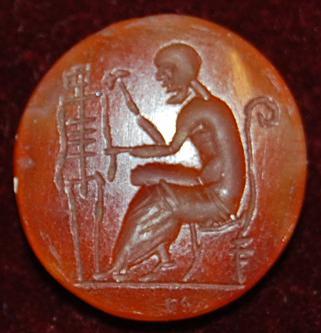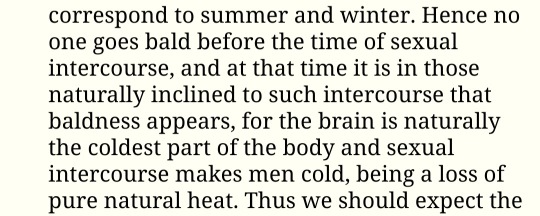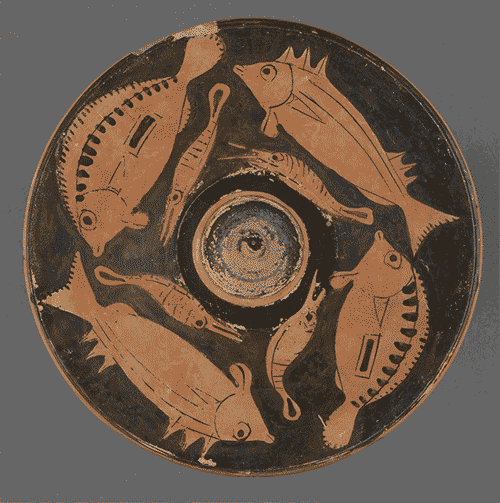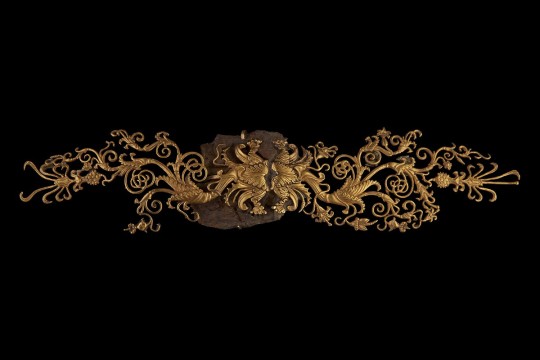hi, i'm charlie! i'm a Latin teacher who loves to talk about dumb ancient Romans. this is a personal blog, but mostly i post silly stuff about ancient Romans. feel free to come chat with me about classics!
Don't wanna be here? Send us removal request.
Text

love the shitty little skeleton on this intalgio of prometheus making mankind. literally looks like one of those display skeletons you'd find in a science classroom
72 notes
·
View notes
Note
can you recommend some libri?
virgil’s aeneid book of summer for the 2040th consecutive year
1K notes
·
View notes
Text

elektra with aegisthus
451 notes
·
View notes
Text

you heard it from aristotle, men: the reason male pattern exists is because you are losing all of your heat. through your peanus.
255 notes
·
View notes
Text

love when im watching a documentary and im like "yep thats an egyptologist alright"
56K notes
·
View notes
Text


my trojan family designs so far
462 notes
·
View notes
Text
Perge





the urge to draw in an ancient city is embodied
177 notes
·
View notes
Text

shoutout to google's AI overview for telling me to go to a real doctor when i searched up pliny the elder's evil lizard drug. who knows what could have happened to me if it hadn't
#tagamemnon#pliny the elder#no evil lizard drug for me!#queueusque tandem abutere catilina patientia nostra
344 notes
·
View notes
Note
Why do you like Bret Devereaux "Spartan debunking" series so much? For me it feels like he uses his personal dislike on that city-state to justify his sayings, not actual facts.
i think maybe you should read it again then anon
because 1) Devereaux rightfully points out that when it comes to archaic/classical Sparta establishing 'fact' is an uphill battle since all the sources are Athenian (herodotus, xenophon and thucydides) or/and not contemporary (plutarch etc), and thus have an external as well as temporal bias. Devereaux also dissects the way in which these primary sources, the closest thing we have to facts about Sparta, have been twisted in so many ways since then, creating a Spartan reception that modern scholars are trying very hard to reevaluate- it's not just a question of regular historical bias, but of a bias from cultural and politically motivated reception that is much more distorted than even regular classical reception vis-à-vis Greece, Rome and the West, going back to Athenian and Roman authors themselves. I don't even think Devereaux dislikes Sparta that much (although he would be justified to have a distaste for their practices), but the way in which Sparta is glorified for said practices, and thus, what Sparta has come to represent.
No but really, that's what the entire essay series is about??? how the 'Spartan mirage' both hides behind and generalizes in its own favour an incredibly complex web of anecdotes, reports, and obscure/scarce material evidence that in no way shape or form proves that the Spartans excelled compared to other ancient societies.
that is pretty much the only fact at issue here, and Devereaux proves this fact several times over by demonstrating how the Spartan reputation snowballed throughout antiquity, and did not reflect the actual state of Sparta in both Hellenistic and Roman times. He literally shows you how and why Sparta ended up losing to Macedonia and Rome, despite their reported prowess. 'his sayings', as you so vaguely call them, are nothing but the fact that Spartans were not superior and that their (proto-)fascist society did not make them so, despite their reputation as one (not to mention, the fact that being a wildly oppressive society only benefited the few and is thus no true benefit at all). he is merely debunking an improbable historical 'success story'. is that so difficult a fact to accept?
Devereaux uses historical 'facts' to point out that Spartan dominance in Greece lasted decades at best, a decade at worst, and that internally, its aristocracy decreased drastically within a century or so (and was doing so before the earthquake, mind you). If this society was so superior, then why did it last so shortly? the 'Spartan mirage' wants to paint Sparta as an ideal, but an ideal society can only be proven an ideal by its lasting success. Sparta's history objectively demonstrates that Sparta? wasn't it. Although they had a series of successful conquests across the Peloponnese, ultimately, their system was just as unstable as the Athenian empire.
2) disregarding the complexity of the 'Spartan mirage' for a moment, Devereaux uses whatever little amount of material evidence and data there is to support his argument statistically.
He demonstrates that Spartan austerity is not fully archaeologically supported, and that that austerity did not actually benefit them in the long term, since it isolated them economically.
He demonstrates that of all reported battles in which the Spartans participated, they had the same victory rate as other Greeks.
He demonstrates how every primary source that mentions the agoge never once proves that the agoge was a plausible cause of (a fake!) military excellence.
He shows how their economic system was unfeasible by calculating the (historical, ' actual factual') decline in citizen numbers which was a result of failure to meet the financial legal demands for citizenship rights.
i.e. Devereaux does not just present the primary sources and assess them critically, he presents quantitative and qualitative research.
like, i'm sorry, but it can't get more objective than the numbers game for Sparta's batting average he provides, and i'll leave it at that:
Let’s give some basic figures. First off, the total batting average (counting victory/draw as .5 of a victory and draw/defeat as .5 of a defeat, with each also being .5 of a draw): Spartan Victories: 18.5 Spartan Defeats: 18 Draws: 1.5 Spartan Batting Average (victories/battles): 0.486 Sparta wins slightly more battles than it loses, but the borderline cases are enough to push Sparta below coin-flip odds. Breaking it down as percentages win/lose/draw, it runs 48.7%/47.4%/3.9% (figures rounded; please note that Philip’s invasion in 338 is not counted in this math, since no battle took place, meaning the above list has 38 battles, not 39. Counting it as a defeat (no contest) would put the Spartans properly underwater, with more defeats than victories. The Spartan record against Macedon is worse: Sellasia (222) falls outside of my date brackets, but is a crushing Macedonian victory. Sparta never actually defeats a Macedonian field army, the Spartans lose every time). Maybe the problem is naval battles? After all, the Spartans never had a reputation for naval excellence – what happens if we remove those? We get 12 victories, 11.5 defeats and 0.5 draws, the balance functionally unchanged. Removing battles where Sparta was in a pan-Greek coalition actually hurts their average, since it removes 3 victories, but only 1.5 defeats and 0.5 draws. It didn’t take Spartans to defeat Persian armies, after all, the Athenians did just fine on their own at Marathon. In short: Sparta’s overall military performance is profoundly average over the Classical period. They don’t even manage a winning record!
There's some interesting discussion going on in the comments on that part about casualty rates and strategic defeats and whatnot, but ultimately Devereaux's point about how a failure to adapt is terminal stands, as well as his point that Spartans weren't übermenschen.
By the way, anon, if your personal dislike of Devereaux's tone obstructs your assessment (who is doing this for free and for fun), can i recommend the following scholarship?
Figueira, Thomas J., et al. Spartan Society. Edited by Thomas J. Figueira, Classical Press of Wales, 2004. --> with chapters on the unstability of the Spartan economic system and citizenship, and its use for the spartan mirage.
Birgalias, Nikos, et al. Sparta: Beyond the Mirage. Edited by Anton Powell and Stephen Hodkinson, Classical Press of Wales, 2002. -> with chapters on the invention of tradition in classical and hellenistic sparta and helotry, perioikoi and spartan social organization, as well as ethnographic studies.
Christesen, Paul, et al. Sparta in Modern Thought: Politics, History and Culture. Edited by Stephen Hodkinson and Ian Macgregor Morris, Classical Press of Wales, 2012. -> with a rundown of the spartan mirage from medieval times to the cold war. note the concepts of austerity/patriarchy = strength and the noble savage.
Bell, Roslynne. Oxford Handbook of Childhood and Education in the Classical World, edited by Judith Evans Grubbs, and Tim Parkin, Oxford University Press, Incorporated, 2013. -> has a chapter on boys, girls, family and the state in sparta.
not to mention, of course, the original 1933 le mirage spartiate by Fracois Oillier. Devereaux is disseminating a longstanding scholarly consensus here; just because there are (politically motivated) critics of that consensus does not make it less valid.
#committing this to memory bc i get asked about sparta all the time at work#queueusque tandem abutere catilina patientia nostra
318 notes
·
View notes
Photo

Just keep swimming, swimming, swimming…
3K notes
·
View notes
Text

302 notes
·
View notes
Text

the haters are turning my beautiful palatine villa into a statement on my acts as pater patriae. sad!
the haters are proscribing me for my correct opinions and my swagful orations
275 notes
·
View notes
Text
the haters are proscribing me for my correct opinions and my swagful orations
275 notes
·
View notes
Text
descriptions of caelius are always like .well he was handsome and smart and witty and clever and borderline prophetic and beautiful and graceful and yes a complete arse BUT most importantly of all. he served cunt.remembver that he served cunt
450 notes
·
View notes
Text

01/11/22 • catullus 51 via sappho 16 via new scientist issue 3397
Some say aircraft and helicopters and some say telescopes and batteries and some say fuels and flight technologies are the most lovely thing on this dark Earth,
but I say it is the aim of holding you skin-to-skin, human-to-human, text-to-text, without any reflection of a god written between us.
this isn't the real issue. you smile, and your mirror image in history looks away, and I watch and lose focus and all communication systems fail—
(I have been running out of the words for this story for the past 2000 years.)
We need surgery to repair a broken silence. We need pulses of electricity, coursing through bone and muscle and skin. to replace the malfunctioning solar panels of my eyes.
and I remember. I would rather see you again than all the emergency luminescence of a major spacefaring nation, burning through the future like jet fuel.
2K notes
·
View notes
Text

Gold fitting, Greece, 325-300 BC
from The Archaeological Museum of Thessaloniki
432 notes
·
View notes
Text
everybody wants their bardsona to compose the next iliad. like dude get real youre not even composing the next thebaid
#my bardsona on the other hand is crafting only philosphical treatises disguised as tales of heroics#of which only three fragments will survive#tagamemnon#queueusque tandem abutere catilina patientia nostra
194 notes
·
View notes